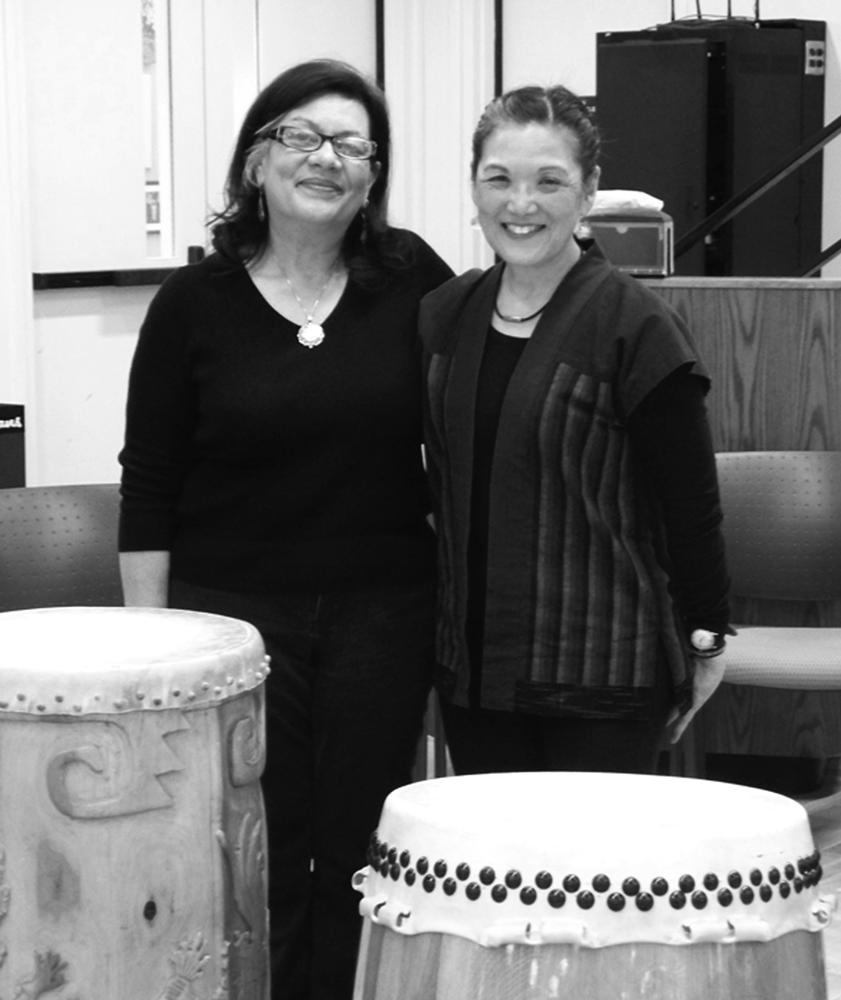In “Using the Cultures of the Valley to Strengthen and Sustain Us,” Elisa Marina Alvarado, the artistic director of Teatro Visión, and P.J. Hirabayashi, co-founder of San Jose Taiko, welcomed students and teachers to witness how two very distinct cultures can come together to create awareness and change in ones community.
Hirabayashi’s self expression is derived from using a Taiko, a Japanese drum, and folk dancing.
“This became my voice, this became my way of connecting with other people in the community,” she said.
While for Alvarado, the Aztec drum envoked the values culture offers.
“Culture has a beautiful way of making sure that those values, those instructions on being a good human are being passed down from generation to generation,” Alvarado said.
Hirabayashi commemorated the first Japanese immigrants who arrived in America with a self-choreographed contemporary dance. Her body moved in an elaborate yet graceful manner that painted images of her grandfather spinning a huge wheel, or a man throwing a fishing net into the sea.
For Alvarado, Teatro Visión is a platform for justice. She is currently working on a new play called “Macario,” from a B. Traven novel, about an impoverished wood-cutter who only wishes to have a day without hunger.
“Every person’s story is just a wealth of wisdom and full of excitement,” she said.
Although both women used traditional instruments and dances, they made it clear that they were not trying to recreate what was done in the past, but instead have their art serve a new purpose.
“We felt that in order to give San Jose Taiko its pure worth, that we had to also reconstruct a new organization,” said Hirabayashi.
“You don’t have to know exactly how things were done long time ago to have culture living in your life,” Alvarado said.
Both women ended the panel with a heartbeat that resounded from Alvarado’s Mexica drum, while Hirabayashi recited “The Charter for Compassion,” a document created by Karen Armstrong that stressed the importance of the compassion from every human being in order to create a better world.









